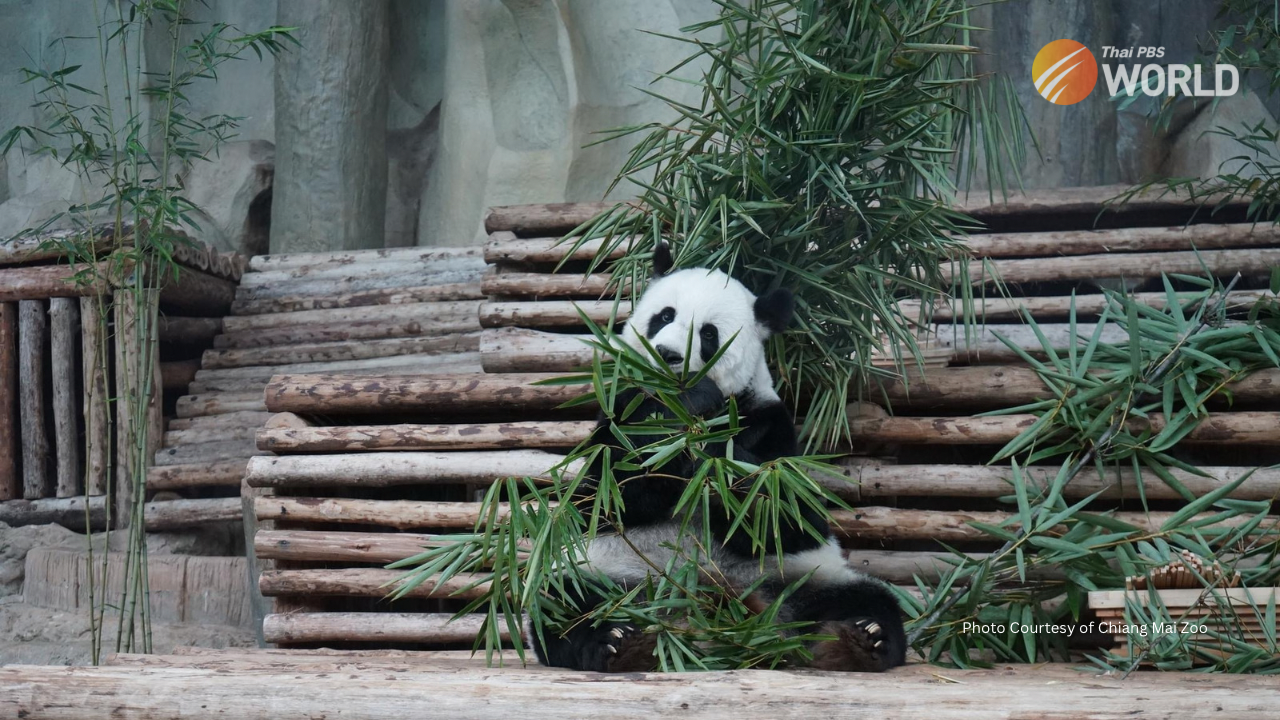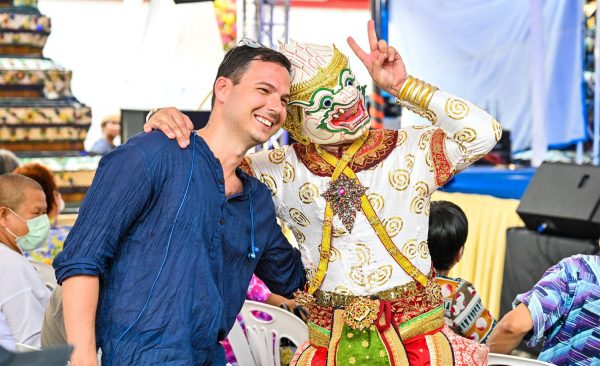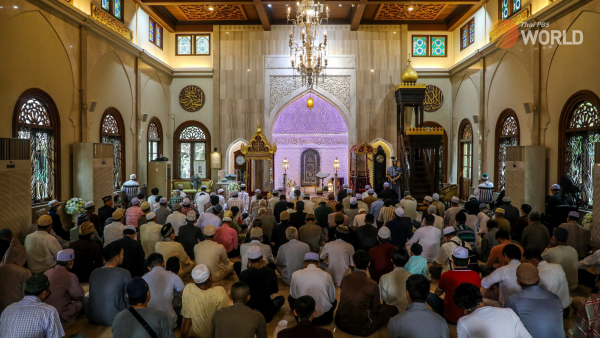After wedding, birth and reality show, Thailand bids farewell to its last giant panda

The recent death of Lin Hui, the last giant panda in Thailand, brought not just sadness but also cherished memories of her two decades here.
Lin Hui passed away on April 19 at the age of 21 at Chiang Mai Zoo, where she had lived as a star attraction since 2003.
Warm welcome
Born on September 28, 2001, in China, Lin Hui arrived at Chiang Mai Zoo in 2003 with her supposed mate Chuang Chuang, who was one year older than her. The couple was the last pair of giant pandas to head out of China.
Beijing’s green light for the 10-year loan of the giant panda reflected the goodwill between China and Thailand. But it also had a financial component. Under the loan agreement’s renewal clause, Thailand had to pay at least US$1 million per year and hand over any cub born during the loan period to China.
In 2003, Thailand celebrated their arrival by throwing a big welcome party for Lin Hui and Chuang Chuang. The two cute giant pandas were given the nicknames Kham Ueai and Kham Ai, names used in the Lanna dialect spoken widely in Thailand’s North including Chiang Mai. They also got Thai-language nicknames – Thewi and Thewan.
Chuang Chuang and Lin Hui were immediately handed VIP status at Chiang Mai Zoo. Their air-conditioned enclosure cost over 46 million baht. In addition to bamboo leaves, they also enjoyed snacks made of carrots, apples, and bamboo bread several times a day. Every year, they had a birthday party. When they were old enough to mate, the zoo held a wedding ceremony lasting five days and five nights in late 2005.
Zoo visitors flocked to their enclosure every day to gaze admiringly at Chuang Chuang and Lin Hui – which ranked among the highlights of most people’s visits. But the giant pandas became even bigger stars after Lin Hui gave birth to a female cub, named Ling Ping, on May 27, 2009.
From November 2009 to October 2012, the panda family at Chiang Mai Zoo was watched 24 hours a day by panda fans via a dedicated channel. The live broadcast came on top of the many shots and videos that regularly appeared in various media outlets.
Goodbye to giant pandas
Thais had to say their farewells to Lin Ping, the first giant panda born in Thailand, in 2011 as it had to be returned to China under the loan agreement.
Then, in 2019, Chuang Chuang died suddenly at the age of 19. Closed-circuit TV recordings showed the giant panda eating bamboo leaves before walking back and forth, and then suddenly staggering and falling flat. The results of an autopsy showed it had succumbed to heart failure.

On April 18, Lin Hui was found to be suffering from a nosebleed. She died a day later while under medical supervision.
Many zoo visitors laid flowers in front of Lin Hui’s enclosure as they bid farewell to the beloved panda.
Was Lin Hui killed by PM2.5?
Netizens have suspected that Lin Hui might have succumbed to PM2.5 smog that has polluted Chiang Mai for several consecutive weeks. High levels of the ultra-fine dust particles are associated with early death from chronic heart and lung conditions.
Chiang Mai Zoo dismissed the suspicions, explaining that the panda had been living inside an enclosed space. It said partitions were put up to protect the enclosure after the COVID-19 pandemic emerged. Inside the closed space, air purifiers were installed to ensure the giant panda was protected from air pollution.
As of press time, the zoo was waiting for the results of an autopsy Lin Hui to be performed by Chinese experts alongside Thai veterinarians.
The zoo believes Lin Hui’s health likely failed due to old age. The lifespan of giant pandas in the wild ranges between 15 and 20 years old, according to the Smithsonian’s National Zoo and Conservation Biology Institute. Those in captivity, however, often live longer. The world’s oldest panda in captivity died last year at the age of 35 – equivalent to 105 years in human age.
By Thai PBS World’s General Desk






